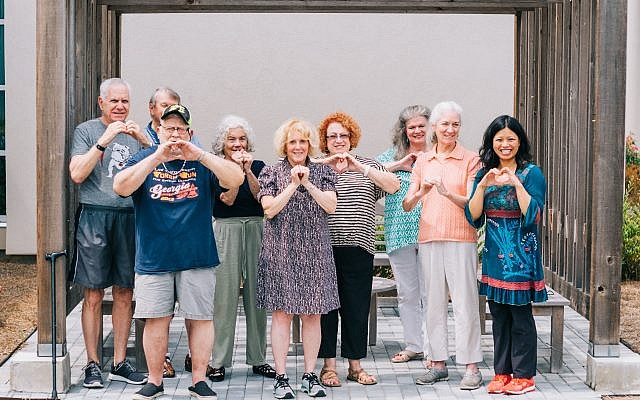Dealing with Early Memory Loss and Diagnosis
Almost everyone over a certain age becomes concerned about memory lapses or loss. How do you know when forgetfulness is a sign to get help?

Almost everyone over a certain age becomes concerned about memory lapses or loss. We hear so much about Alzheimer’s disease and dementia in the news that we become fearful and confused and do not know to what degree and when memory loss becomes something more than the natural aging process. How do you know when forgetfulness is a sign to get help?
“Often, people are so affected by the stigma of possibly having Alzheimer’s disease or other related dementias, that they are afraid to go to a doctor about changes in their cognitive function. Getting an accurate diagnosis early on is very important because there are many things that can cause symptoms of dementia and changes in cognitive ability,” said Kim McRae, co-founder of Culture Change Network of Georgia and president of Have a Good Life.
“For example, while changes in the brain that cause dementia are permanent and worsen over time, thinking and memory problems caused by conditions such as depression, medication side effects and thyroid problems can improve when the condition is treated or addressed,” she said.
Dementia and Alzheimer’s disease are often used interchangeably. They actually have very different meanings. Dementia is not a specific disease but is a general term used to describe symptoms characterized by the loss of cognitive function (memory, language skills, visual perception, problem-solving, self-management and the ability to focus and pay attention). There are more than 200 subtypes of dementia, with Alzheimer’s disease being the most common form.
Often, individuals will receive a diagnosis of mild cognitive impairment (MCI) from their doctor. MCI does not necessarily lead to Alzheimer’s disease (AD), although individuals with MCI do have a greater risk of developing AD. MCI causes a slight, but noticeable, decline in cognitive abilities, but the decline is not severe enough to interfere with daily life. Between 15 and 20 percent of people 65 and older are living with MCI in the United States.
Laura Medders, social worker and administrative manager of Emory’s Integrated Memory Care Clinic, a nationally recognized program that provides primary care individualized for people living with dementia, stressed the importance of early detection.
“If you start to notice changes in thinking, more specifically memory, judgment, reasoning, language, etc., it is helpful to bring these concerns to your primary care provider. Their office may be able to provide you with a cognitive screening or refer you to a neurologist who can provide a more thorough workup. We now know that changes in the brain are happening before people become symptomatic. If the person is diagnosed with dementia, early intervention often leads to opportunities for the individual to plan for the future, to potential opportunities to engage in research trials, and to reduce healthcare spending,” Medders said.
Exercising Your Brain to Stay Sharp
Research has shown that the best way to keep the brain in optimum health is with physical exercise, cognitively stimulating exercises and staying socially engaged.
Last year, Georgia Gunter, Jewish Family & Career Services geriatric care manager and former director of the Weinstein Center, helped launch a new program, Brain Health Bootcamp, at JF&CS.
The first of its kind in Atlanta, this program is designed to provide a cognitive and physical exercise program to individuals who may be experiencing a decline in cognitive functioning as a result of MCI, early stage Alzheimer’s disease, or other related dementias.
The brain fitness part is facilitated by Fini Shell, certified cognitive stimulation coach and owner of Keep in Mind, a consulting company offering cognitive coaching to individuals and groups.
“The cognitive activities in the boot camp focus on short and long-term memory, executive function, visual memory, multitasking and attention to detail using word games and language-based activities. As part of the socialization component, participants are introduced to various memory techniques and spend time discussing and practicing them as a group,” Shell explained.
The physical exercise portion is led by Ling Olaes, certified art and yoga therapist at JF&CS, and includes breathing techniques, yoga, and fun cardio moves that require the individual to remember sequenced movements.
“It is rewarding to see the transformations that take place here. Friendships are formed and participants gain confidence and a sense of reassurance that they are not alone in their journey,” Gunter said.
Because of the popularity of the program, there are now two groups that meet weekly, one with mild cognitive impairment and another with more significant memory loss. There are also plans to offer the boot camp at senior living facilities.
For more information about Brain Health Bootcamp, of Aviv Older Adult Services, visit www.jfcsatl.org/brainhealthbootcamp, or call 770-677-9421. Ongoing semesters of eight weekly classes are offered 1 to 3 p.m. and 2 to 4 p.m. Thursdays at JF&CS. Individual classes are $25 or $200 for a full semester. The program is made possible, in part, through a grant from the Breman Foundation, Inc.
- Chantal Spector
- Health and Wellness
- Senior Living
- Alzheimer’s disease
- Dementia
- Kim McRae
- Laura Medders
- Emory’s Integrated Memory Care Clinic
- Jewish Family & Career Services
- Weinstein Center
- Brain Health Bootcamp
- Fini Shell
- Ling Olaes
- Aviv Older Adult Services
- Culture Change Network of Georgia
- Have a Good Life
- Georgia Gunter
- yoga
- Arts
- Aging
- Memory Loss



comments